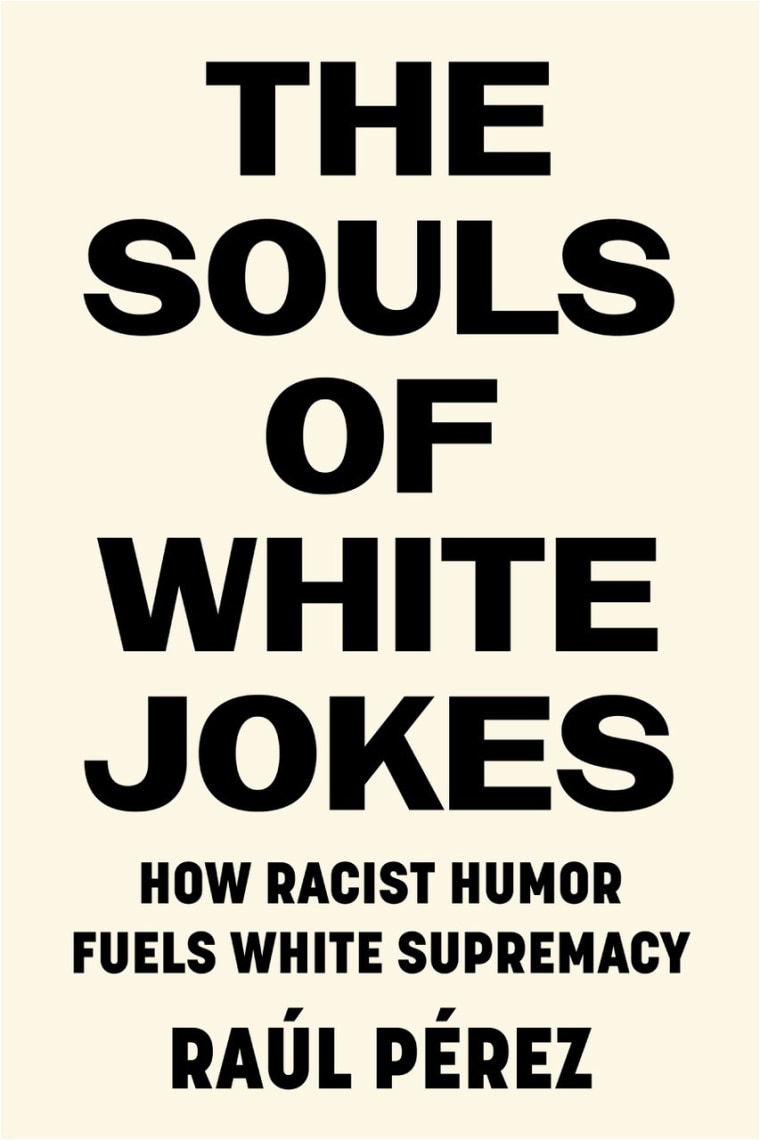Offensive racist jokes have been a contentious topic in society for decades, sparking debates about humor, free speech, and cultural sensitivity. These jokes often exploit racial stereotypes and can perpetuate harmful biases. In today's diverse world, understanding their impact is more important than ever. This article explores the nuances of offensive racist jokes, their effects, and how we can foster a more inclusive environment.
Humor has long been a powerful tool for communication and expression, but it can also be a double-edged sword. While some argue that offensive jokes are merely a form of free speech, others see them as perpetuating systemic racism. This divide highlights the complexity of the issue and the importance of discussing it openly.
Our goal is to provide an in-depth analysis of offensive racist jokes, their historical context, and their psychological effects. By doing so, we aim to empower readers with the knowledge to navigate these sensitive topics responsibly and contribute to a more harmonious society.
Read also:White Affair Outfits The Ultimate Guide To Stylish And Timeless Elegance
Table of Contents
- What Are Offensive Racist Jokes?
- Historical Context of Racist Humor
- Psychological Effects of Offensive Jokes
- Impact on Society
- Why Are Offensive Racist Jokes Problematic?
- Examples of Offensive Racist Jokes
- Alternatives to Racist Humor
- Legal Standpoint on Offensive Humor
- How to Address the Issue
- Conclusion
What Are Offensive Racist Jokes?
Offensive racist jokes refer to humor that targets individuals or groups based on their race, ethnicity, or cultural background. These jokes often rely on stereotypes and can perpetuate harmful biases. While humor is subjective, the impact of these jokes can be significant, especially when they contribute to marginalization or discrimination.
Characteristics of Offensive Jokes
Understanding the characteristics of offensive jokes is crucial in identifying them. Below are some key features:
- They rely on racial or ethnic stereotypes.
- They can perpetuate discrimination or prejudice.
- They may trivialize serious issues such as racism or inequality.
Recognizing these characteristics helps in fostering a more respectful dialogue about humor and its role in society.
Historical Context of Racist Humor
The use of offensive racist jokes has deep historical roots. In many societies, humor was used as a tool to reinforce existing power structures and marginalize minority groups. For example, minstrel shows in the 19th century depicted African Americans in derogatory ways, perpetuating harmful stereotypes.
Evolution of Racist Humor
Over time, societal attitudes towards racist humor have shifted. While such jokes were once widely accepted, increased awareness of their impact has led to greater scrutiny. Today, many people advocate for humor that promotes inclusivity and respect for diversity.
This evolution highlights the importance of cultural sensitivity in humor and the need to adapt to changing societal norms.
Read also:Unveiling The True Meaning Of Heyy A Comprehensive Guide
Psychological Effects of Offensive Jokes
Offensive racist jokes can have profound psychological effects on both the targeted group and those who hear them. Research shows that exposure to such jokes can lead to increased prejudice and decreased empathy towards marginalized groups.
Impact on Mental Health
For individuals who are the target of these jokes, the impact can be particularly damaging. It can lead to feelings of alienation, stress, and even depression. Furthermore, it can reinforce negative self-perceptions and contribute to a sense of powerlessness.
Understanding these effects is essential in promoting mental health and well-being in diverse communities.
Impact on Society
Offensive racist jokes not only affect individuals but also have broader societal implications. They can contribute to a culture of intolerance and hinder efforts towards social cohesion. In workplaces, schools, and public spaces, such jokes can create hostile environments that discourage inclusivity.
Challenges in Promoting Inclusivity
One of the challenges in addressing offensive jokes is balancing free speech with the need for respect and inclusivity. Societies must find ways to encourage open dialogue while discouraging harmful behavior. Education and awareness play a critical role in achieving this balance.
By fostering a culture of respect, we can create environments where diversity is celebrated rather than ridiculed.
Why Are Offensive Racist Jokes Problematic?
Offensive racist jokes are problematic for several reasons. Firstly, they perpetuate harmful stereotypes that can lead to discrimination and prejudice. Secondly, they can normalize such behavior, making it seem acceptable in certain contexts. Lastly, they contribute to a culture of exclusion, where certain groups feel marginalized or undervalued.
Examples of Harmful Stereotypes
Stereotypes perpetuated by offensive jokes can be deeply ingrained in societal attitudes. For instance, jokes about certain ethnic groups being lazy or unintelligent can reinforce discriminatory hiring practices or educational disparities. Addressing these stereotypes requires a concerted effort to challenge and dismantle them.
By recognizing the harm caused by such jokes, we can take steps towards creating a more equitable society.
Examples of Offensive Racist Jokes
While it is important to discuss offensive jokes, it is equally important to approach examples with sensitivity. Below are some hypothetical examples that illustrate the nature of such humor:
- Jokes that mock accents or dialects.
- Jokes that stereotype certain ethnic groups as being less intelligent or capable.
- Jokes that trivialize historical injustices such as slavery or colonization.
These examples highlight the potential harm caused by such jokes and underscore the need for more thoughtful humor.
Alternatives to Racist Humor
Humor does not have to rely on offensive stereotypes to be effective. Many comedians and writers have successfully created content that is both funny and respectful. By focusing on universal experiences or absurd situations, humor can entertain without causing harm.
Strategies for Inclusive Humor
Here are some strategies for creating inclusive humor:
- Focus on shared experiences rather than differences.
- Avoid using stereotypes or derogatory language.
- Be mindful of the audience and their cultural backgrounds.
By adopting these strategies, we can promote humor that unites rather than divides.
Legal Standpoint on Offensive Humor
In many countries, laws exist to protect individuals from discrimination and hate speech. While free speech is a fundamental right, it is not unlimited. Offensive racist jokes that cross into hate speech territory may be subject to legal consequences.
Key Legal Considerations
Understanding the legal boundaries of humor is important for both creators and consumers. Below are some key considerations:
- Know the laws related to hate speech in your jurisdiction.
- Be aware of workplace policies regarding offensive behavior.
- Consider the potential legal ramifications of sharing or creating offensive content.
By staying informed, we can ensure that our humor remains within legal and ethical boundaries.
How to Address the Issue
Addressing the issue of offensive racist jokes requires a multi-faceted approach. Education, awareness, and open dialogue are essential components of this process. Encouraging individuals to reflect on the impact of their words can lead to more responsible behavior.
Steps for Change
Here are some actionable steps for addressing the issue:
- Promote educational programs that teach cultural sensitivity.
- Encourage open discussions about the impact of offensive humor.
- Support content creators who prioritize inclusivity and respect.
By taking these steps, we can create a society where humor enhances rather than diminishes human connection.
Conclusion
Offensive racist jokes remain a significant issue in today's society. While humor is an integral part of human interaction, it is important to recognize the potential harm caused by certain types of jokes. By understanding their historical context, psychological effects, and societal impact, we can work towards creating a more inclusive and respectful environment.
We invite readers to reflect on their own humor and consider how it contributes to the world around them. Share your thoughts in the comments below or explore other articles on our site for more insights into cultural sensitivity and inclusivity. Together, we can make a difference.



